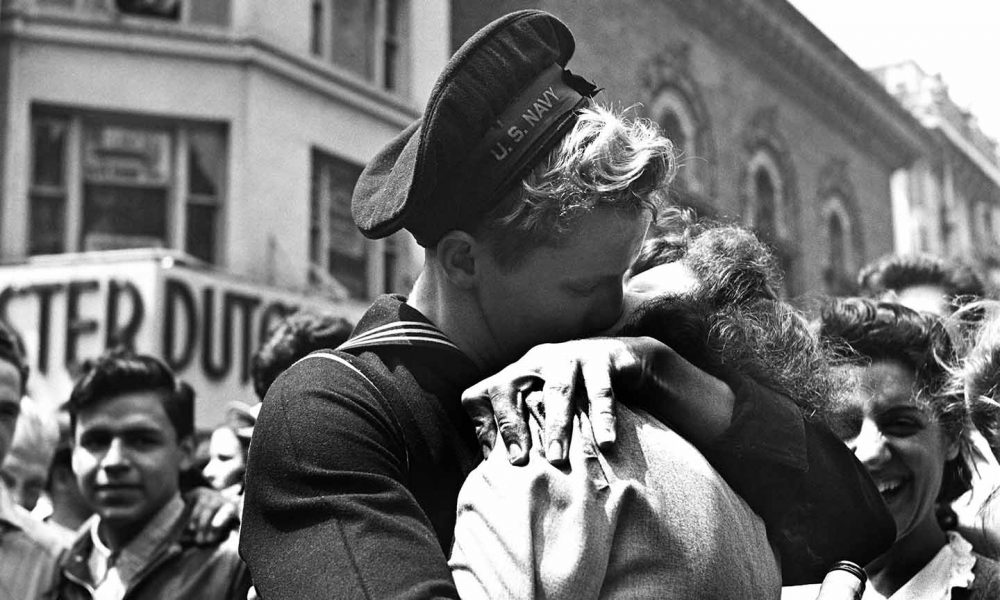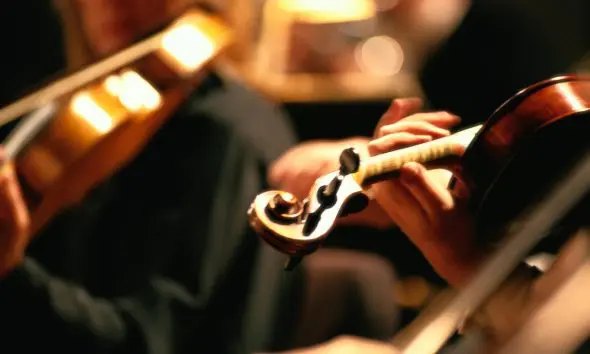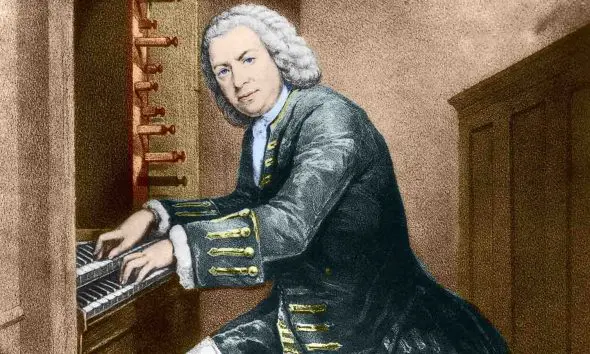Best Music For VE Day: ‘Songs That Won The War’
Discover our selection of the best music for VE Day, featured on ‘Songs That Won The War’, including Dame Vera Lynn’s ‘We’ll Meet Again’.

On May 8, we will celebrate the anniversary of Victory in Europe Day. Nothing brings back memories, consoles, and conjures up an era quite as vividly and instantaneously than the popular songs of the day. Wherever they were sung – in dance halls or factories, on the radio, or the front line – they gave men and women the inspiration to carry on. Whatever happens, they said, we’ll have a barrel of fun, a lovely weekend, gather lilacs in the spring, praise the Lord and pass the ammunition and get lit-up while nightingales sing in Berkeley Square. Discover our selection of the best music for VE Day, including ‘We’ll Meet Again’, ‘The White Cliffs Of Dover’, ‘I’ll Be Seeing You’ and ‘The Lambeth Walk’.
Listen to Songs That Won The War on Apple Music and Spotify.
‘We’ll Meet Again’
‘We’ll Meet Again’, first recorded in 1939 by Vera Lynn, was one of the enduring songs of World War II (a perhaps unconscious echo of ‘Till We Meet Again’, among the most famous songs of World War 1). ‘We’ll meet again, Don’t know where, Don’t know when, But I know we’ll meet again some sunny day’ – who has not heard the song at some point their life (maybe from their use in the final scene of Stanley Kubrick’s Dr. Strangelove as humanity is wiped out by a nuclear explosion)? Yet not one in a million could tell you anything about Ross Parker and Hughie Charles, the English songwriters who penned the song, one of the best pieces of music for VE Day. Or that they also wrote another of the most famous songs of the era: ‘There’ll Always Be An England’. So let’s give them a name check here and now: Albert Rostron Parker (1914-74) and Charles Hugh Owen Ferry (1907-95), both from Manchester. There ought to be a statue. It was only in 1986, long after he had retired as a theatre producer, that Hughie Charles received the prestigious Jimmy Kennedy Award from the British Academy of Songwriters, Composers and Authors. His co-writer (who as an actor appeared briefly in the film of Chitty Chitty Bang Bang) also penned Shirley Bassey’s first recording ‘Burn My Candle’. One for the pub quiz!
(There’ll Be Bluebirds Over) The White Cliffs of Dover
Second only to ‘We’ll Meet Again’ in wartime popularity was (‘There’ll Be Bluebirds Over) The White Cliffs Of Dover’, another hit by two forgotten names, Nat Burton and Walter Kent. It was written in 1941 during the darkest days of the War, before America and the Soviet Union had joined the conflict. Nat Burton was an American lyricist and so was unaware that no bluebird has ever flown over the cliffs of Dover, white or any other colour, as it is not indigenous to Britain. Most recordings omit the two verses that precede the familiar chorus, both of which include the phrase ‘Thumbs up’) which was the RAF term for permission to go and ‘fly those angry skies’. The first of them goes …
I’ll never forget the people I met braving those angry skies
I remember well as the shadows fell, the light of hope in their eyes
And tho’ I’m far away, I can still hear them say “Thumbs Up!”
For when the dawn comes up …
There’ll be bluebirds over … etc.
The most famous recording of ‘The White Cliffs Of Dover’ featured, again, Vera Lynn.
It’s A Lovely Day Tomorrow
‘It’s A Lovely Day Tomorrow’, another big hit, was surprisingly written in anticipation of a Second World War. In 1938 the British-Hungarian film producer Alexander Korda was in a New York taxi with the great songwriter Irving Berlin. Conversation turned to the Munich agreement with both men expressing their disquiet about the international situation. Korda asked Berlin if he’d written a war song yet. Berlin had not, but a few blocks later, so the story goes, he had come up with the tune and the lyrics. Berlin used it in his 1940 musical Louisiana Purchase (a year before he wrote ‘White Christmas’, still the biggest-selling single of all time).
I’ll Be Seeing You
For many people, the most beautiful song from this era is ‘I’ll Be Seeing You’, another ballad written by an American songwriting team and which owed its existence to a pre-War musical. Sammy Fain and his lyricist Irving Kahl used it in a 1938 revue called Right This Way (it closed after only 15 performances). Its most famous recording is by Billie Holiday (1944) but it was Bing Crosby’s rendition in the same year that took it to the top of the charts. Several people have noted the similarity between the main tune’s first four lines and a passage in the last movement of Mahler’s Third Symphony. Mahler himself may have got the same theme from Marco Spada, a now-obscure comic opera from 1852 by Auber. No matter – it’s a heartbreaker.
(We’re Gonna Hang) The Washing On The Siegfried Line
One of the most popular acts of the time was the singing-comedy duo of Flanagan and Allen. Bud Flanagan (1896-1968) and Chesney Allen (1894-1982) had their first big recording success with ‘Underneath The Arches’ back in 1932 written by Flanagan and Reg Connelly. There was a follow-up (also featured on Songs That Won The War) called ‘Round The Back Of The Arches’, nothing like as successful as the duo’s recordings of (‘We’re Gonna Hang) The Washing On The Siegfried Line’ and ‘Run, Rabbit, Run’. The former was written by Ulster songwriter Jimmy Kennedy (see the award in his name mentioned above) whilst he was a Captain in the British Expeditionary Force during the early stages of the Second World War, with music by his songwriting partner Michael Carr (they had had a huge pre-War hit with ‘South of the Border’). The ‘Siegfried Line’ song (referring to the vast, allegedly impregnable fortification built in the 1930s along the German Western front) was first published in 1939 and became one of the biggest morale-boosting songs of the War. ‘Run, Rabbit, Run’, first featured in a 1939 revue called The Little Dog Laughed and was written by Noel Gay and Ralph Butler. It remained immensely popular long after the War and was the inspiration for ‘Who Do You Think You Are Kidding, Mr Hitler?’ the opening title song of the BBC’s long-running comedy hit Dad’s Army, a pastiche written in 1968 and recorded by the elderly Bud Flanagan just a few months before his death.
The Lambeth Walk
Another Noel Gay song, one of the best pieces of music for VE Day, proved more controversial. ‘The Lambeth Walk’ featured in his 1937 musical Me And My Girl. The song takes its name from a local street, Lambeth Walk in Lambeth, a working-class area of London, and gave rise to a Cockney dance of that name made popular by the show’s star Lupino Lane. ‘The Lambeth Walk’ became a huge dance craze on both sides of the Atlantic – and in Germany, despite it being denounced by the Nazi Party as ‘Jewish mischief and animalistic hopping’. In 1942, Britain’s Ministry of Information made a short propaganda film entitled Lambeth Walk – Nazi Style which set the song to footage from Leni Riefenstahl’s film Triumph Of The Will making it appear as if the SS troops were marching to it. Catch it on YouTube. It’s still very funny. The film’s director was placed on Goebbel’s list of people to be eliminated when Britain was defeated.
Lili Marlene
There is one song during the War years which, uniquely, was a hit in Britain just as much as it was in Germany: ‘Lili Marlene’. In fact, it was played so frequently on the radio in Germany that Goebbels banned it for a while (until popular opinion forced him to change his mind). The original lyrics are actually a poem written in 1915 by one Hans Leip (1893-1983), a Hamburg school teacher conscripted into the German Imperial Army. It was eventually published in 1937 as ‘Das Lied Eines Jungen Soldaten Auf Der Wacht’ (‘The Song Of A Young Soldier On Watch’), set to music in 1938 by Norbert Schultze and first recorded by Lale Anderson in 1939. In 1942 she made a recording of the song in English, but the lyrics she used were a translation by Norman Baillie-Stewart, a turncoat British officer working for German propaganda, and a predecessor of Lord Haw-Haw. Alternative English lyrics were written by the great lyricist Tommie Connor, whom the present writer was fortunate enough to know well. The song was recorded by many artists, most famously by Marlene Dietrich but also by Anne Shelton and, inevitably, the irreplaceable Vera Lynn.
The mere mention of these names – along with Glenn Miller, The Andrews Sisters, The Ink Spots, Gracie Fields and many others – are indelibly associated with the war years. Their songs, among many others, are included on Songs That Won The War which features our selection of the best music for VE Day. The sentiments behind them are a timely tonic for the present troubling times.
Listen to Songs That Won The War on Apple Music and Spotify.






